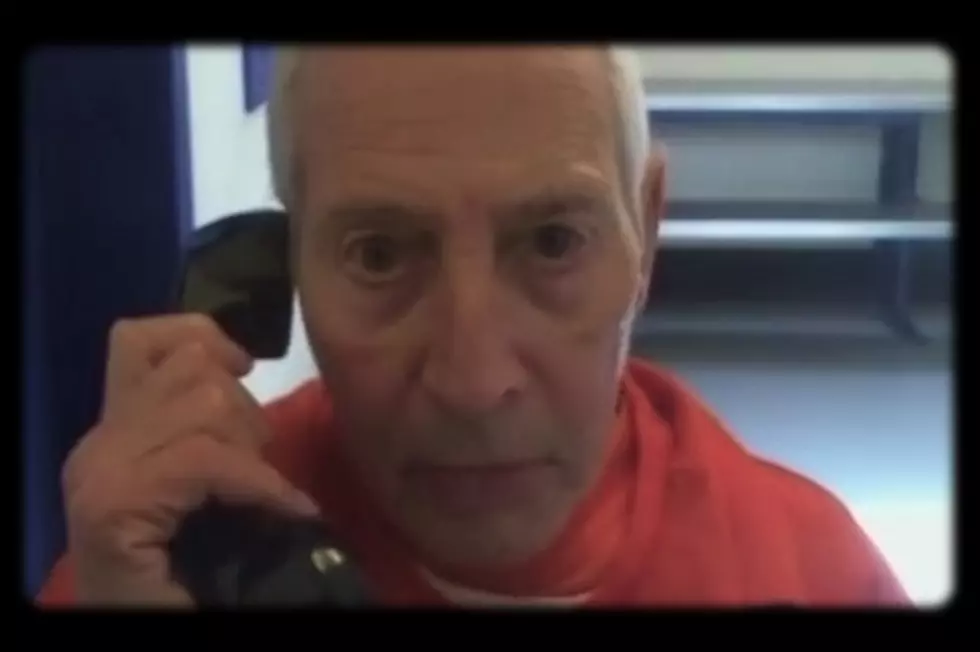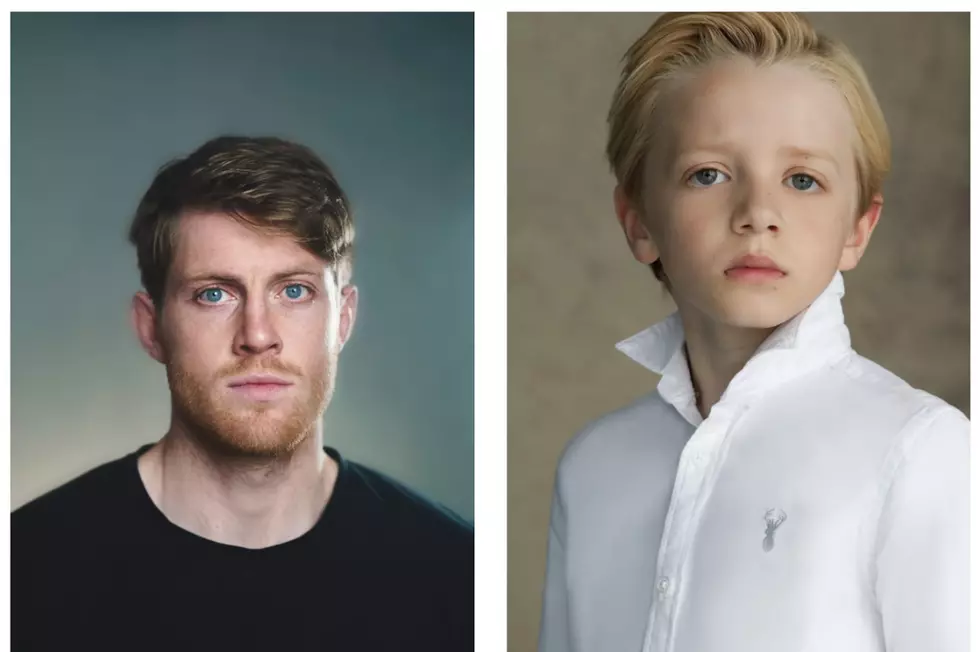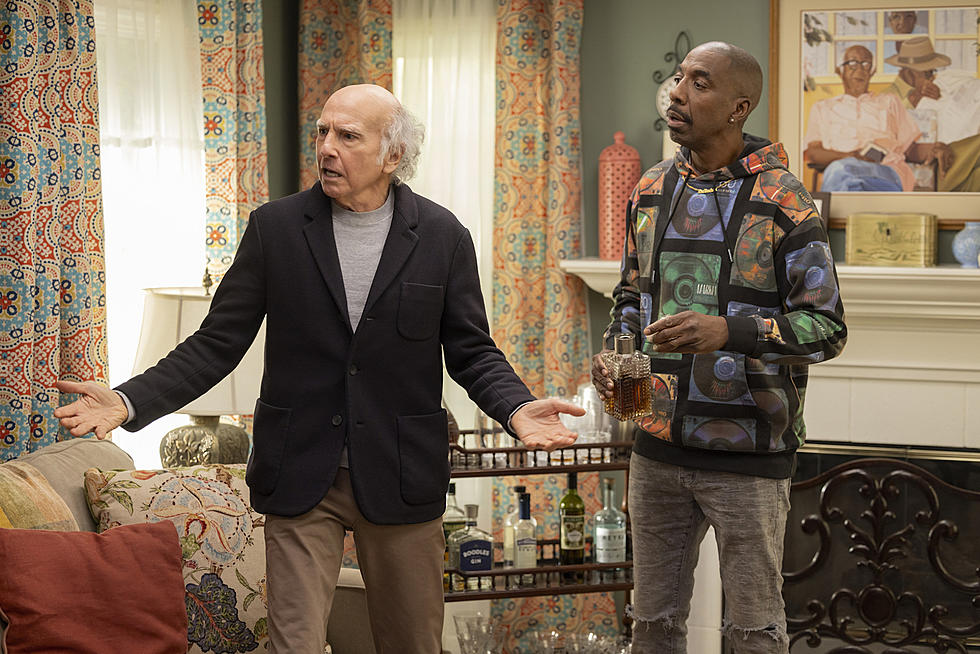
‘Girls’ Talk: “Video Games”
We're joined by another critic this week to discuss the most recent episode of 'Girls.' In "Video Games," we get to meet Jessa's dad, and the flighty, irresponsible puzzle pieces abruptly click into place.
ScreenCrush editor Britt Hayes is joined by Eric Lefenfeld to discuss this week's episode of 'Girls.' Eric contributes reviews for eFilmCritic and you can tweet him @EricLefenfeld. You can tweet Britt @MissBrittHayes.
Britt: I think the first thing we need to talk about this week is the main focus of the episode, and that was meeting Jessa's dad. We finally get a little bit of an explanation about why Jessa is the way she is -- her father is also flighty and deals with the imminence of responsibility by fleeing. I think he clearly loves Jessa, and it's that love that terrifies him and makes him run away. It's interesting to juxtapose characters like Jessa and Hannah against Jessa's father because there's really not much difference between them: Jessa flees when confronted with real problems, Hannah dumps Adam because she's scared to open herself up to someone and commit to an adult relationship, and Jessa's dad runs away from Jessa time and again for very similar reasons. Maybe people don't change that much when they grow up. What do you think?
Eric: He does love his daughter; it's plainly clear in the banter that they start to share immediately upon the girls' arrival. There is genuine warmth between the two that still burns brightly even if they're not a significant part of each others' lives. However, I think saying that "it's love that makes him run away" is giving his crap fatherhood more nobility than it deserves. Maybe that's what he tells himself to justify his behavior, but Jessa, as she says at the end of the episode, is the child. And that's all that matters. As you said, his flightiness is mirrored in both Hannah and Jessa's treatment of relationships, but that sort of behavior is much more black and white when it comes to fathers and their offspring. If you neglect your child, you're not a great person. Period. Love's got nothing to do with it. There's really no justification other than that he's never been mature enough to put away childish things and take responsibility for the choices he's made.
Britt: What I mean by his love driving him away is that I think he's terrified of the responsibility that his love for Jessa requires. All love requires a level of responsibility, and I'm not saying he's a good parent or that we should cut him some slack, but I was in awe of the way "Video Games" treated Salvatore as a father. The episode wasn't interested in condemning him, and neither was Jessa. Her pleas for him to be a father to her weren't accusatory or cruel, and that's not the sort of Jessa attitude we might have expected. Instead, she's reduced to a neglected little girl. I love the way the episode confronts the ideas of how parents influence our behavior -- whether it's the way they treated us in the past, or the way they treat us now -- and how we are always children in their presence, whether they view us that way or not.
Eric: Well, right. As with the other supporting characters that make their way through 'Girls,' Salvatore is shaded beyond being just the two-dimensional deadbeat dad. I think it's telling that it's not at all hard to imagine Rosanna Arquette's character as what Jessa might be like a few decades down the line, just completely lost in her own video game fantasy land as a security blanket against confronting her own woes. If Salvatore can't raise his daughter, then he might as well marry her stand-in, and it doesn't even seem like he's doing a very good job in that department, either. Really, though, this storyline was mostly a catalyst for Hannah to grow up just a little bit. If Jessa can still love this man who continually does her wrong, then Hannah's really got nothing to complain about, and it was nice to see her have some awareness of that in her phone call to her parents. Plus, more Becky Ann Baker on my TV is never a bad thing.
Britt: Although Jessa was the main focus, I was mostly struck by Hannah's own behavior this week. I'm not typically annoyed by her, but this week she's meant to be grating with her petulant, child-like whining about everything from her UTI to wrongly hooking up with that turtleneck teenager. I think we're meant to find Hannah exceptionally difficult this week because it contrasts nicely against Jessa's more reserved attitude, and it also allows for Jessa to be a proxy parent to Hannah in a sense. I loved the phone call to Hannah's parents because it shows that at least someone is wise to her melodramatic BS -- yes, there was genuine sentiment involved and she did really want to express her appreciation to her parents, but as soon as her mom accepts the affectionate words, Hannah takes it too far, as usual. I think Hannah was the worst person to bring on a trip like this, which is exactly why Jessa took her along -- she's a good distraction from the heartache Jessa knows is imminent, but it's also good for Hannah, who is used to being the main character in every story.
Eric: I really did like how the phone conversation was turned back around on Hannah. Looks like she's cried wolf one too many times. The interplay between Jessa and Hannah is always great, and a dynamic that's much more interesting to me than the "will they or won't they" of Hannah and Marnie's friendship. (That isn't meant romantically, by the way, just that their friendship is on the rocks as of late.) There's a symbiosis between the two of them, which is probably rooted in Lena Dunham's real life friendship with Jemima Kirke. Jessa can allow herself to fall back on Hannah, but she doesn't have to take off her veil of indifference to do so (crying in the bathtub a few weeks ago being an exception to the rule). This surely will become a problem at some point where support crosses the line into enabling, but for now, having Hannah around is the best of both worlds for her.
Britt: I know that Jessa's fleeing at the end of the episode must have been due in part to Kirke's real-life pregnancy during the filming of this season, but I think it's an inspired decision and one that makes sense for her character. When we first met Jessa, she had just returned from one of her worldly adventures, instigated by who knows what sort of situation, but one that was undoubtedly similar to the circumstances leading to her departure this week. When we watched Jessa and Thomas John's marriage implode, it became clear to me that this situation had happened many times before with Jessa -- though she probably never went as far as marrying any of the men she'd shacked up previously.
I think we see echoes of that with her father, too, who has apparently ditched several girlfriends and wives -- and children -- over the course of his life. And they were all probably very similar to Jessa, having all the qualities about her that are not her father's -- meaning every woman he's been with, like Arquette's character, has been in some ways an echo of Jessa's mother. I'd be interested to see what Jessa's mom is like.
Eric: Few people want to admit that they're taking on more and more traits of their parents as they age, and I think that's why 'Girls' has gone out of its way to introduce a decent amount of the characters' mothers and/or fathers over the show's relatively brief run. We see the similar mannerisms, clothing styles, behavioral tics -- and it provides an interesting perspective on what it means to be an "adult." It goes back to what you mentioned earlier, the idea that no one ever really grows up. Personally, I came to this conclusion a few years ago when my workplace started to resemble a gossip-fueled middle school cafeteria. It seems that for the most part, peoples' basic personalities tend to calcify somewhere in adolescence. I've maintained this admittedly cynical viewpoint since, but a few years on, I see both in myself and in friends that its a little more complicated than that.
We want to think we're somehow above the flaws that we see in our parents, but if anything, we embody them more and more as the playing field is leveled in terms of age. Jessa sees this when she talks to her father, and it scares the living hell out of her. Jessa is young. Culture dictates that she has every right to be flaky and irresponsible, and she can use that as a buffer to not examine herself. Seeing the same traits so blatantly embodied in her father throws all that back in her face. There was a time when she might've convinced herself to laugh it off or throw out some pseudo-bohemian catch phrases to explain it all away. No longer. She's still running away from her problems, but it seems she might be a little more self-aware about it this time out, which is at least a step in the right direction.
Britt: These are all wonderful insights, and I don't think I could have said it better myself. Any last words about this week's episode? Maybe a plea to spare the lives of rabbits or a call to eliminate the turtleneck from existence?
Eric: I've never met a rabbit I didn't eat. The cuteness makes the meat extra moist.
Also, this episode just reinforced what I already knew. Urinary tract infections are no fun for anyone involved (excluding the germs). I was hoping for a post-episode PSA about keeping one's orifices fresh and sparkly, but alas. I guess I'll have to wait until the next off-format episode in which Hannah spends a wild couple of days with her handsome, older gynecologist.
Also of note: this season has featured both Griffin Dunne and Rosanna Arquette. One can safely assume that other cast members from 'After Hours' will be showing up sooner or later. In other words, I'm throwing a brick through the TV if I don't see Bronson Pinchot by season's end.
More From ScreenCrush









